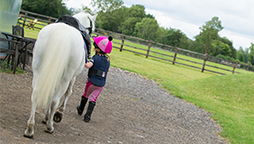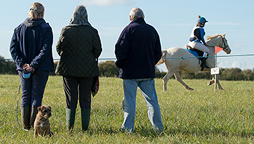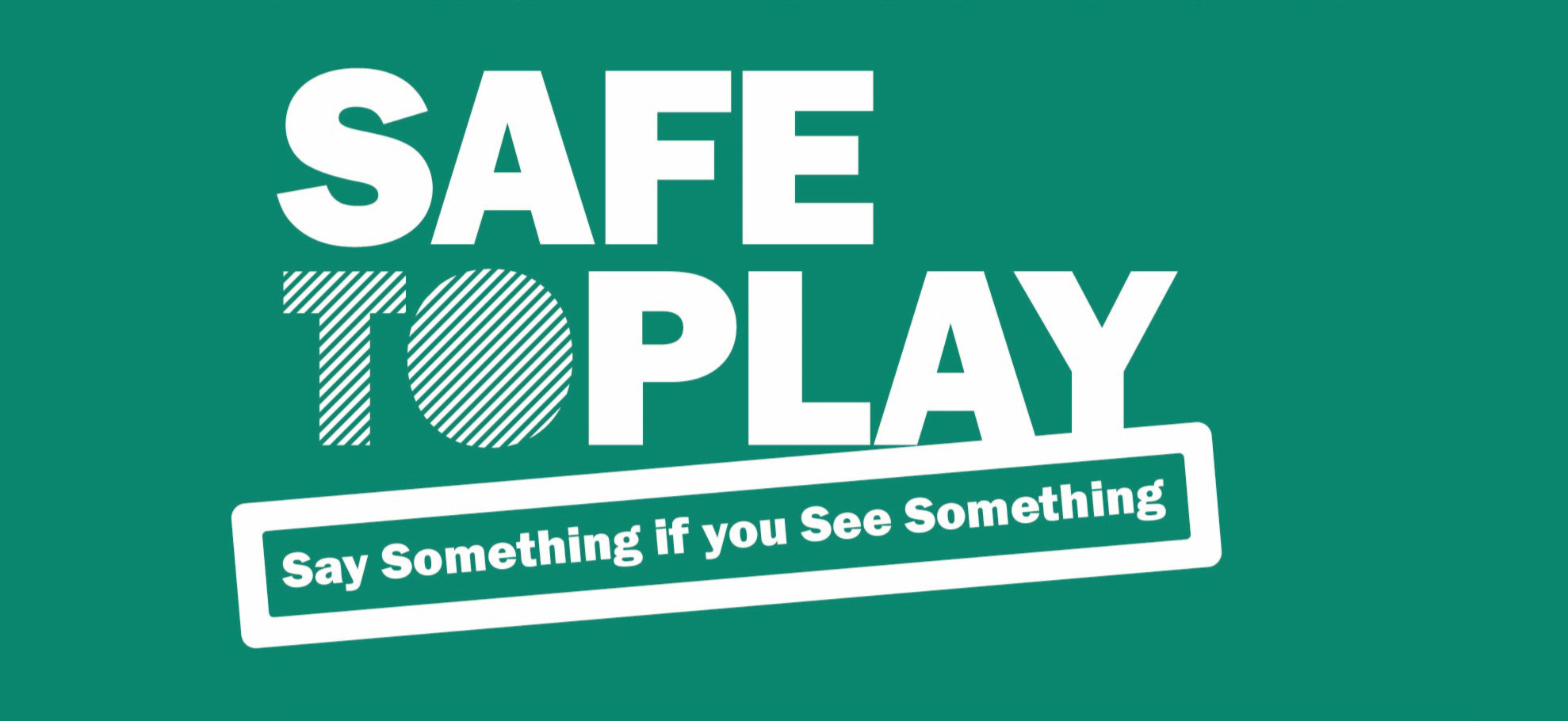Safeguarding for employers
Ensuring that your employees and clients are able to enjoy their time at your centre with the peace of mind that you're doing all you can to ensure their safety is very important. In order to achieve this, there are a number of things that you can do...
- Have an appointed Safeguarding Officer
- Follow the British Equestrian Safeguarding Policies (Children & Young People and Adults at Risk)
- Carry out a risk assessment to identify and manage risks at your club or centre to include safeguarding children, young people and adults at risk
- Utilise codes of conduct for your staff, volunteers, competitors, spectators, parents, etc.
- Ensure that the Safeguarding Officer and other staff working with children, young people and adults at risk have attended safeguarding training workshops, and those working in regulated activity with children have had an appropriate Criminal Record Check.
- Ensure that individuals at the club or centre know how to respond to concerns about a child. Examples could be a flowchart procedure for responding to concerns, or posters displayed outlining who the Safeguarding Officer at the club or centre is together with contact details.
- Have disciplinary guidelines for disciplinary issues.
- Review if any child protection concerns have been raised at your club or centre, and if so how have they been dealt with.
CPSU Podcast "The Basics of Safeguarding"
Duty of Care
Clubs and centres have a duty of care towards children and young people. Further guidance on what that duty means, and what can be done to demonstrate that this duty is being met, is detailed in the link below.
Recruiting and selecting people to work with children, young people and adults at risk
A commitment to provide safe and enjoyable environments, sound recruitment and selection procedures is essential. The intentions of most people who work with children, young people and adults at risk are good. However, when centres or clubs recruit new staff and volunteers, all reasonable steps must be taken to ensure that unsuitable people are prevented from working in equestrian sport.
Further information on recruitment can be found in the documents below...
Recruitment Selection and Training
Reference Form template (word doc.)
Criminal Record Checks
British Equestrian requires those working in eligible roles with children, young people and adults at risk to pass a criminal record check. This is in line with legislation and Government guidance, and is standard practice. In order to help you to ensure that those required to have criminal record checks while at your club or centre have them, we provide the framework and guidance for criminal record checks in equestrian sport.
Who needs a criminal record check?
Eligibility is governed by legislation and Government guidance. In brief, this means that a criminal record check is required for anyone aged 16 years or over who undertakes any potentially unsupervised roles that involve working directly with children and young people under the age of 18.
These activities include...
- managing, training, coaching and supervising
- giving advice or guidance on wellbeing
- caring for children
- driving a vehicle solely for children on behalf of a club, centre or organisation
All coaches and managers working directly with under-18s must hold a current criminal record check, accepted by the centre or club they work for. Those staff or volunteers with significant access to children, or holding a Position of Trust, must first be vetted by the centre or club who is employing them to establish whether they are suitable to work with children.
If a member of staff or volunteer is changing their role and will be taking on responsibility for children, they will need to have a criminal record check before they take up their new job role.
Each British Equestrian Member Body has a Criminal Record Check plan that is bespoke to their discipline. If in doubt, please contact your Member Body Safeguarding Officer or the British Equestrian Safeguarding team for advice.
Further information can be found in the Government guidance documents...
- DBS checks in sport – working with children
- DBS checks in sport – working with children (Welsh)
- DBS checks in sport - working with adults
- DBS checks in sport - working with adults (Welsh)
Who completes a Criminal Record check?
It is the responsibility of the club or centre to arrange a criminal record check for any employees or volunteers. They are also responsible for ensuring that the criminal record is satisfactory before the person starts working for them.
What type of criminal record check are needed to work with children?
In England and Wales, an Enhanced DBS Check with the children’s barred list checked is needed. You may find the DBS (England and Wales) Eligibility tool useful to find out what type of check is most relevant for you, your staff and volunteers.
In Scotland, staff and volunteers will need to register with the PVG scheme. The British Horse Society, in conjunction with Horsescotland and Disclosure Services, provides a complete checking service for British Equestrian Member Bodies, BHS Approved Centres, affiliated riding clubs and other equine organisations.
In Northern Ireland, staff and volunteers will need to have an Enhanced Access NI Check. Further information on AccessNI checks can be found here.
If you have recently moved to the UK, or are planning to move to the UK, you may need an overseas criminal record check. Further information on overseas criminal record checks can be found here.
What if somebody has a criminal conviction?
Where the criminal record check highlights any relevant information, this must be investigated further, and a risk assessment must be carried out to establish whether the person will be accepted to work with children, young people or adults at risk. The British Equestrian Safeguarding team can provide advice to centres and clubs to ensure that a consistent approach to the risk assessment is applied across equestrian sport. It is a criminal offence for employers or voluntary organisations to knowingly employ a barred person in regulated activity.
Self-Declaration Forms
Self-declaration doesn't replace the need for a DBS disclosure check for eligible roles, but can provide additional information that a DBS check will not.
Self-declaration can be part of your club's or centre's safer recruitment process. It involves requiring an individual to provide information to be used as part of a decision on their suitability for a particular role with children.
Some organisations use a separate self-declaration form, while others embed self-declaration questions within their overall application form.
Self Declaration template (word doc.)
Self Declaration template (pdf)
Safeguarding Training
British Equestrian seeks to build a safe, enjoyable and inclusive environment for all. To help make sure everyone understands their safeguarding responsibilities, British Equestrian have developed three dedicated training courses. They are:
- Basic safeguarding awareness course (for anyone)
- Safeguarding for equestrians course (aimed at coaches, volunteers, officials, parents etc.)
- Equestrian Safeguarding Officer course (aimed at those with specific safeguarding responsibilities in their yard/club/organisation).
Our member bodies use these courses to deliver training to their participants. It's important that those in a position of trust keep their training up to date and so we recommend all those working with children or adults at risk to have safeguarding training every three years.
Delegates can alternate between our tutor-led courses and self-led courses to meet this requirement. Following this pattern means they will receive face-to-face (whether virtual or in-person) training with a qualified tutor at least every six years.
To keep up to date with your training you can:
- Take part in a British Equestrian tutor-led training session (more information below)
- Complete the self-led training online with Smart Horizons (links below)
- Attend a pre-approved course. These include:
- UK Coaching: Safeguarding and protecting children
- SportScotland: Child wellbeing and protection in sport
- SportScotland: In Safe Hands
- Sport Ireland: Safeguarding and protecting young people in sport
- CPSU Time to Listen
- NSPCC courses (depending on the level)
- Complete the Designated Lead Officer 3-day courses offered by your local authority
Tutor-led training
Each of our three safeguarding courses are available in a tutor-led format. This is normally a three-hour session, either online or in person. The tutor will take delegates through a slide deck and work through case studies, helping delegates to apply safeguarding procedure to in-yard or in-competition scenarios.
Delegates who complete any of the three courses will receive a safeguarding certificate for their course and will receive a copy of all the course materials for any future reference. If you would like to take part in this training, please contact your member body for more information.
Self-led training
British Equestrian have also collaborated with Smart Horizons to provide online-only and self-led versions of our courses. For more information, please see:
- Basic safeguarding awareness course
- Safeguarding for equestrians course
- Equestrian Safeguarding Officer course


